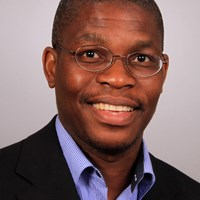30 April was another day filled with moving philanthropic experiences shared by foundations here at the EDGE Funders Alliance conference in Berkeley, CA.
The day started with at least three interesting performances – of three poems inspired by the importance of benevolence and the work of philanthropic organizations all over the world. I realize how much it helps to visualize and dramatize important matters rather than just talk through often ‘cold’ PowerPoint slides:
• The first poem presents the interconnectedness of life all over the planet to which the ‘well-off’ are often oblivious. How important it is to realize that your refrigerator is stocked with food that is produced by cheap labour exploited by big multinational corporates and polluted by pesticides to which your body soon falls sick.
• The second poem was a dialogue between a human and earth. Earth reminds the human that they are slowly sliding away from natural existence retreating into their concrete jungles, destroying forests and the fresh water sources. Earth reminds the human that she will survive with or without this relationship but will mankind survive?
• The third poem paints a scene of two protests taking place in Washington DC. The first protest is the Free Palestine movement and the second is a Gay Rights parade. The voices are competing as the two marches move in parallel. Towards the end a single voice emerges: ‘…Palestine Gay Rights!’ These noises all over the world distract us from what many may agree needs attention first and from all.
The plenary was equally moving titled, ‘Strategies for the historic shifts we need’. The panellists comprised Walden Bello, Philippine author, academic and member of congress; Million Belay, director of MELCA Mahiber, a food sovereignty activist from Ethiopia; Sarita Gupta, executive director of Jobs with Justice; and Holly Bartling of the Human Rights and Economic Justice Programme. Important takeaways from this plenary can be summarized as:
• People do not perpetually tolerate huge and obvious disparities in wealth. The French Revolution repeats itself all the time all over the world and we seem not to learn. Will it not repeat itself this time on a global scale? The big question is whose solutions will the general public choose? Will the corporate, rich and middle classes retain their privileges when the next class revolution happens?
• Africa and the world are faced with increasing mouths to feed annually amidst disparities in consumption patterns and contrasting increases in climatic change, soil degradation and erosion and poor yield. It seems that everyone has solutions for Africa but no one has genuine interest in its development. Through interventions by international governments and corporations African agriculture has slowly been changed into agribusiness. Million gave practical examples of how his programmes are making a difference in restoring fish stocks and turning unproductive land into fertile land using traditional methodologies in Ethiopia.
• One of the biggest challenge that faces humanity is livelihoods. Trends internationally are for jobs to become contingent, part time, contracted, thereby minimizing the historic value associated with valuable and useful work. Jobs for Justice won a big battle against WalMart, forcing it to ensure that abuses and exploitation from its suppliers are not tolerated and workers’ interests are protected.
Lookout for my next and final report from the EDGE Funders Alliance conference at the Bay in San Francisco.
Fulu Netswera is chair, Tswera Community Foundation, South Africa.
This was first published by the Global Fund for Community Foundations.






Comments (0)